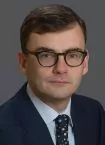Keywords: UK Supreme Court, legal advice privilege, LAP, Prudential, HMRC
In a judgment delivered on 23 January 2013, the UK Supreme Court1 upheld the decision of the Court of Appeal2, that legal advice privilege ("LAP") should not be extended to cover legal advice provided by accountants.
Facts of the case
This case arose as a result of notices served on Prudential ("the Company") by HM Revenue and Customs ("HMRC") pursuant to section 20 Taxes Management Act 1970, requiring disclosure of information relevant to the Company's tax liability. The documentation sought included communications between the Company and PricewaterhouseCoopers, a firm of accountants, on a tax scheme.
In R (Morgan Grenfell & Co) v Special Commissioner of Income Tax [2002] UKHL 21, the House of Lords held that a notice under section 20 does not require a person to disclose documents to which LAP applies.
The Company challenged the notices on the basis that the material sought was covered by LAP.
The issues and previous judgments
In October 2009, the High Court held that LAP did not extend to legal advice given by accountants in respect of tax matters.
The Company appealed. Given the importance of the issue, the Law Society, the Bar Council and the Institute of Chartered Accountants were all given permission to make representations to the Court of Appeal. One of the Company's principal arguments was that it should be the nature of the advice (legal advice concerning tax) which was determinative, not the status of the adviser.
The Court unanimously dismissed the Company's appeal, holding that it was bound by an earlier Court of Appeal decision that LAP does not apply, at common law, in relation to any professional other than a qualified lawyer: a solicitor, barrister or appropriately foreign qualified lawyer. (Wilden Pump Engineering Co v Fusfeld [1985] FSR 159, Court of Appeal.)
It further held that, while Article 8 of the European Convention for the Protection of Human Rights guarantees protection of advice provided by members of the legal professions, it cannot be taken to require the extension of that privilege to communications with any other person who may be asked to give legal advice. Further, it is a requirement of human rights law that the relevant legal position would be appropriately certain; to extend LAP (without statutory help) to other professionals would render its scope "lamentably uncertain".
The Court went on to say that even if it was not bound by Wilden Pump, it was not appropriate to decide that LAP applies outside of the legal professions, except as a result of relevant statutory provisions, because LAP should be clear and certain in its application (for instance as to whom, and in what circumstances, it applies). The decision was accordingly for Parliament.
The Judgment of the Supreme Court
The Supreme Court dismissed (by a majority of 5 to 2) the Appeal.
Lord Neuberger (who gave the leading judgment, with whom the majority agreed) acknowledged that the Appellant's argument was strong one in principle. It was accepted that accountants have the expertise to advise on tax law and often do so rather than solicitors. LAP exists to ensure that a person can request and obtain legal advice with the knowledge that the communications involved can never be used against that person. Further, LAP is for the benefit of the client and is not there to guard the legal profession.
However, despite acknowledging the "strong case in terms of logic" for allowing the Appeal, Lord Neuberger declined to do so, reaching his conclusion for the following main reasons:
1) Extending LAP would lead to uncertainty surrounding what is currently a clear legal principle (for example, the problems of identifying qualifying professions, deciding if a profession was one which "ordinarily includes the giving of legal advice" and separating legal and non-legal advice from non-legal professionals);
2) The decision to extend LAP is a policy issue and should therefore be a decision for Parliament; and
3) Parliament has previously extended LAP to certain other professions (Patent Attorneys, Trade Mark agents and Licensed Conveyancers) and has also provided certain limited protections to auditors and tax advisers but has considered (and rejected) an extension of LAP to accountants.
Implications of the decision
The significance of the case is demonstrated by interventions from various representative bodies on both sides of the argument. However, whilst it is tempting to focus on this case in a tax context, as Lord Neuberger observed, it would inevitably follow from a decision extending LAP to tax advice given by accountants, that legal advice given by other professionals would also be covered.
The obvious and most practical consequence of this decision is that the legal position remains as it was, and it appears that (absent future intervention by Parliament) advice provided by non-legal professionals will continue to be subject to the more limited statutory protections provided by the UK tax code. Against a backdrop of increasing scrutiny of tax planning by corporates and high net worth individuals, this will continue to be a significant issue.
Footnotes
1 R (on the application of Prudential PLC & Anor) v Special Commissioner of Income Tax & Anor [2013] UKSC 1
2 [2010] EWCA Civ 1094
Visit us at mayerbrown.com
Mayer Brown is a global legal services provider comprising legal practices that are separate entities (the "Mayer Brown Practices"). The Mayer Brown Practices are: Mayer Brown LLP and Mayer Brown Europe – Brussels LLP, both limited liability partnerships established in Illinois USA; Mayer Brown International LLP, a limited liability partnership incorporated in England and Wales (authorized and regulated by the Solicitors Regulation Authority and registered in England and Wales number OC 303359); Mayer Brown, a SELAS established in France; Mayer Brown JSM, a Hong Kong partnership and its associated entities in Asia; and Tauil & Chequer Advogados, a Brazilian law partnership with which Mayer Brown is associated. "Mayer Brown" and the Mayer Brown logo are the trademarks of the Mayer Brown Practices in their respective jurisdictions.
© Copyright 2013. The Mayer Brown Practices. All rights reserved.
This Mayer Brown article provides information and comments on legal issues and developments of interest. The foregoing is not a comprehensive treatment of the subject matter covered and is not intended to provide legal advice. Readers should seek specific legal advice before taking any action with respect to the matters discussed herein.



